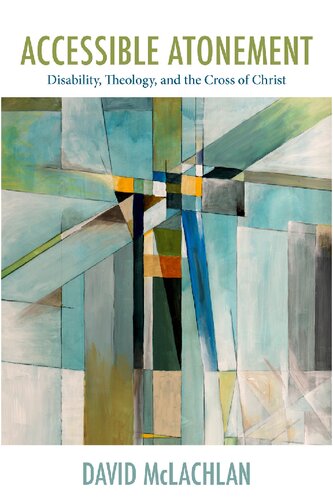

Most ebook files are in PDF format, so you can easily read them using various software such as Foxit Reader or directly on the Google Chrome browser.
Some ebook files are released by publishers in other formats such as .awz, .mobi, .epub, .fb2, etc. You may need to install specific software to read these formats on mobile/PC, such as Calibre.
Please read the tutorial at this link: https://ebookbell.com/faq
We offer FREE conversion to the popular formats you request; however, this may take some time. Therefore, right after payment, please email us, and we will try to provide the service as quickly as possible.
For some exceptional file formats or broken links (if any), please refrain from opening any disputes. Instead, email us first, and we will try to assist within a maximum of 6 hours.
EbookBell Team

0.0
0 reviewsThe atonement―where God in Jesus Christ addresses sin and the whole of the human predicament―lies at the heart of the Christian faith and life. Its saving power is for all people, and yet a deep hesitancy has prevented meaningful discussion of the cross’ relevance for people with disabilities. Speaking of disability and the multifaceted concept of the atonement has created an unresolvable tension, not least because sin and disability often seem to be associated within the biblical text. While work in disability theology has made great progress in developing a positive theological framework for disability as an integral part of human diversity, it has so far fallen short of grappling with this particular set of interpretive challenges presented by the cross.
In Accessible Atonement, reflecting on his experience as both a pastor and a theologian, David McLachlan brings the themes and objectives of disability theology into close conversation with traditional ideas of the cross as Jesus’ sacrifice, justice, and victory. From this conversation emerges an account of the atonement as God’s deepest, once-for-all participation in both the moral and contingent risk of creation, where all that alienates us from God and each other is addressed. Such an atonement is inherently inclusive of all people and is not one that is extended to disability as a "special case." This approach to the atonement opens up space to address both the redemption of sin and the possibilities of spiritual and bodily healing.
What McLachlan leads us to discover is that, when revisited in this way, the cross―perhaps surprisingly―becomes the cornerstone of Christian disability theology and the foundation of many of its arguments. Far from excluding those who find themselves physically or mentally outside of assumed "norms," the atoning death of Christ creates a vital space of inclusion and affirmation for such persons within the life of the church.